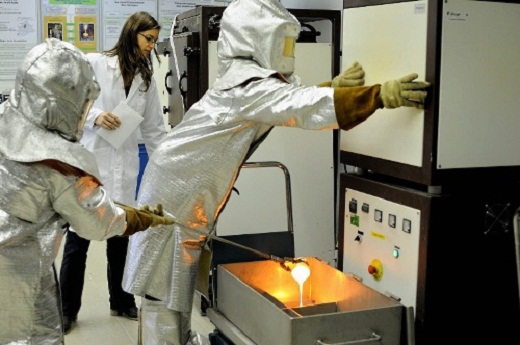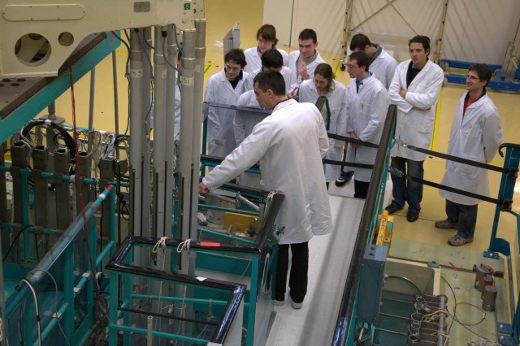A rigorous, transparent and multilateral framework
As a responsible nuclear actor, France conducts all its cooperation activities in the field of civil nuclear energy in compliance with the highest safety, security and non-proliferation standards.
Responsible bilateral cooperation
Civil nuclear cooperation agreements in the area of nuclear energy concluded by France include strict clauses on the peaceful and non-explosive aim of cooperation, regular IAEA controls, protection of sensitive information, standards that apply in the areas of safety, security and nuclear third party liability, intellectual property, as well as clauses setting out the terms for transferring and re-transferring the materials, knowledge and equipment provided to third parties which aim to avoid any diversion. We encourage all our partners to supplement their comprehensive safeguards agreement with an additional protocol and to join the relevant international conventions in the nuclear field. The agreements concluded by France involve all geographical regions and help to set up a legal framework of solid cooperation which is adapted to the diverse needs of partner countries.
Technical safeguards are also a means of protecting ourselves against possible proliferation. France therefore only exports third-generation reactors, which are safer and pose greatly reduced risks of proliferation.

French cooperation is part of strict compliance with its international commitments. It is a member of the international export control regimes (NSG, Zangger Committee) and is subject to the provisions of EC Regulation No. 428/2009 1 setting up a Community regime for the control of exports, transfer, brokering and transit of dual-use items.
This cooperation is carried out within a transparent framework (as part of its membership of Euratom, France is required to submit all agreements before their signature to the European Commission and publish ratified agreements).
Specific institutional support tailored to partners’ needs
France is providing its partners wishing to develop a nuclear power programme with coordinated assistance in preparing the necessary infrastructure (e.g. training and information, energy policy, feasibility and implementation studies, regulatory framework, waste management). This assistance is based on the expertise of all industrial (ORANO, EDF, Framatome) and institutional actors of its nuclear programme (CEA, ASN/IRSN, Andra) to allow them to lay the foundations for a safe and responsible programme, in coordination with the work of the IAEA.
Over 50 years, France developed a specific training system closely linked with the needs of the nuclear industry and its control, as well as research. Bringing together academic and industrial initiatives, this system provides a wide range of training covering all trades and skills required for the sector : technicians, engineers, researchers, experts, lawyers and managers for design, operation and innovation, safety, protection of Man and the environment. As part of this collaboration, France shares this experience with the partner countries who want to develop their nuclear power programme. The main actors in the sector (universities and schools, manufacturers, research bodies and agencies, relevant Ministries) have put in place a partnership to coordinate the training based on the needs of the sector in France and abroad.

Created on a government initiative in 2010, the International Institute of Nuclear Energy (I2EN) brings together the major actors in the area of nuclear energy training : major manufacturers, research bodies and public agencies, main universities and schools, as well as the relevant Ministries. As an international point of entry, I2EN has almost 20 master’s-level or equivalent training programmes and 50 training programmes from professionnal high-school degrees to Bachelors, specialized in nuclear sciences and techniques. Being the French actor for bilateral cooperation and contact point for newcomer countries, it provides advice, guidance and support to France’s partner countries in the establishment of their nuclear training programmes. Each year, about 15% of the students that receive a Master’s degree from France on nuclear energy are non-French.





